Understanding state-by-state regulations is crucial for legally owning a mini stun gun keychain as an everyday carry tool. US states have diverse laws governing taser ownership, including permit requirements, age limits, and restrictions in certain areas. While some states allow open or concealed carry with minimal restrictions, others have stringent rules. Mini stun guns, despite their compact size, are powerful self-defense tools that require responsible ownership, proper training, and adherence to local regulations to ensure safe use without legal repercussions.
“In an era of evolving self-defense considerations, understanding civilian taser ownership laws is paramount. This comprehensive guide explores state-by-state regulations regarding taser acquisition, focusing on the accessibility of these powerful tools for personal safety. We delve into the requirements for permits and licensing, shedding light on crucial safety training mandates. Additionally, we examine the growing trend of compact mini stun gun keychains as a viable everyday carry option, offering both convenience and potential protection.”
- Understanding Taser Ownership: A Legal Perspective
- State-by-State Regulations: Unlocking the Requirements
- Mini Stun Gun Keychain: A Viable Option for Everyday Carry?
- Permits and Licensing: What You Need to Know
- Safety and Training: Responsibly Owning a Taser
Understanding Taser Ownership: A Legal Perspective
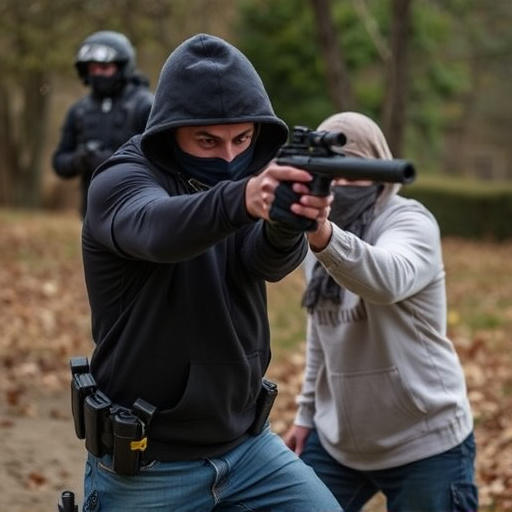
Understanding Taser ownership from a legal perspective is crucial, especially as the popularity of mini stun guns like the keychain-sized models grows. In many states across the US, regulations on civilian stun gun possession vary widely, with some allowing open carry and others restricting them to concealed carry with permits. These laws often differentiate between traditional firearms and stun devices, which can lead to unique sets of rules. For instance, while a handgun may require a background check and license in one state, a mini stun gun might only need to be registered.
Knowing your rights and responsibilities is essential when considering everyday carry options like a mini stun gun keychain. Some states have specific requirements for age, residency, and training before allowing individuals to purchase and possess stun devices. It’s also important to note that certain locations, including schools, government buildings, and airports, may have additional restrictions or bans on stun gun ownership, even if they are legally allowed elsewhere. Staying informed about these nuances is vital for responsible and legal stun gun ownership.
State-by-State Regulations: Unlocking the Requirements
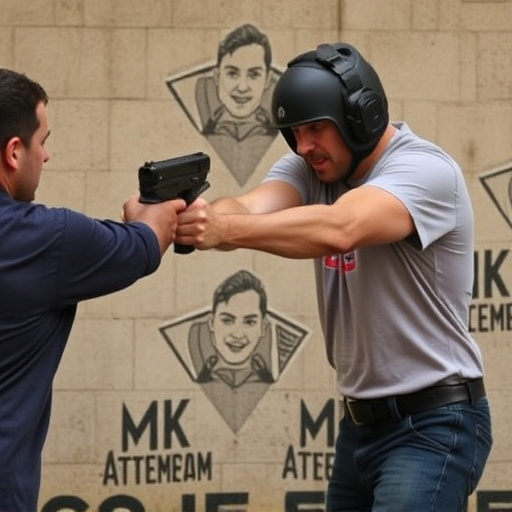
In the United States, regulations regarding civilian ownership of tasers vary widely from state to state. This creates a patchwork of requirements and restrictions that prospective buyers must navigate before acquiring one of these powerful tools for personal protection. Understanding these laws is crucial when considering owning a mini stun gun keychain for everyday carry.
Each state has its own set of criteria, ranging from age restrictions to permit requirements and waiting periods. Some states, like Texas and Florida, allow qualified individuals to own tasers without a permit, while others, such as California and New York, mandate that buyers obtain a concealed weapons license or pass a background check. Certain regulations also focus on the type of taser permitted, with some states limiting power levels or prohibiting specific features found in more advanced models. As technology evolves, so do these laws, reflecting a delicate balance between individual rights and public safety concerns.
Mini Stun Gun Keychain: A Viable Option for Everyday Carry?
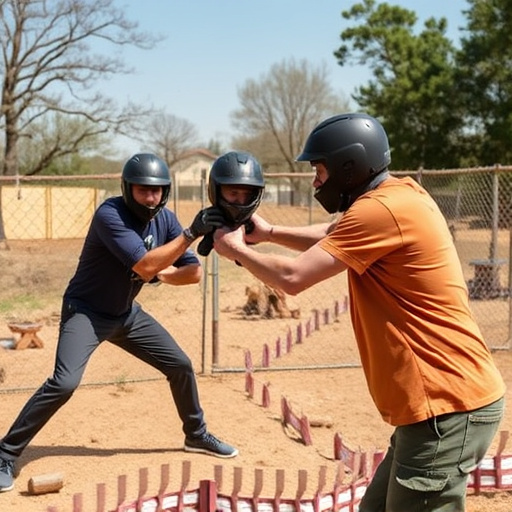
The concept of carrying a stun gun as a personal defense tool has evolved, and one intriguing option gaining traction is the mini stun gun keychain. This compact device, designed to fit comfortably on a keychain, offers a new perspective on self-defense for everyday carry enthusiasts. With various models available, these tiny stun guns pack a surprising punch, delivering powerful electric shocks that can incapacitate an assailant temporarily.
For those seeking a discreet and readily accessible defense mechanism, the mini stun gun keychain presents a compelling case. Its compact size allows it to be easily carried in pockets or attached to keys, ensuring it’s always within reach. This everyday carry option provides a sense of security, especially for individuals who frequently find themselves in potentially risky situations. However, as with any self-defense tool, understanding local regulations and compliance with state laws regarding civilian stun gun ownership is paramount before considering this viable option.
Permits and Licensing: What You Need to Know
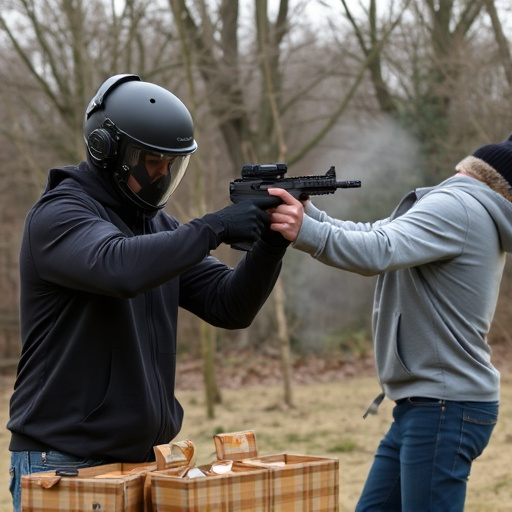
In many states, owning a civilian taser is more than just purchasing a device; it involves navigating a web of permits and licensing requirements. These regulations are designed to ensure responsible use and safety in handling such powerful tools. Typically, individuals looking to carry a mini stun gun keychain for everyday carry will need to undergo a background check and possibly obtain a permit or registration certificate. The process varies by state, with some requiring a simple online application while others mandate an in-person visit to local law enforcement.
Understanding these requirements is crucial before making the decision to own a taser. States often have specific rules regarding who can possess a stun gun, including age restrictions and any disqualifiers on individuals with certain criminal histories or mental health conditions. Additionally, there might be limitations on where and how you can use your taser, emphasizing the need for proper training and knowledge of local laws.
Safety and Training: Responsibly Owning a Taser
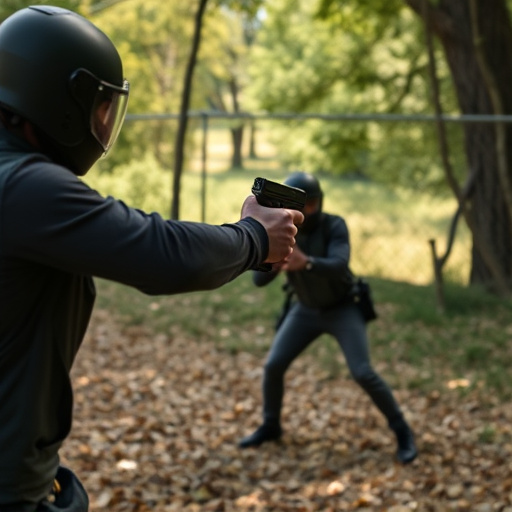
The safe and responsible ownership of a taser, even in civilian hands, is paramount to ensure its effectiveness as a self-defense tool while minimizing risks. Many states have recognized this need and implemented regulations that include mandatory training for individuals seeking to purchase and carry stun guns like mini stun gun keychain for everyday carry. This training often covers the proper use, handling, and potential side effects of tasers, teaching users how to deploy them safely during an emergency.
Beyond basic training, ongoing safety measures are crucial. This includes storing the device securely in a designated location, keeping it out of reach of children and unauthorized individuals, and regularly inspecting the taser for any signs of damage or malfunction. Responsible owners also stay informed about local laws and regulations regarding taser ownership and use, ensuring they comply with all requirements to avoid legal repercussions.
Understanding the legal landscape surrounding taser ownership is crucial for civilians considering armed self-defense. State laws vary widely, with some allowing open carry and others requiring permits or licensing. The article has explored these regulations in depth, highlighting the need for responsible ownership and proper training, especially when considering a mini stun gun keychain for everyday carry. By staying informed about their state’s specific requirements, individuals can make informed decisions to ensure they are in compliance with the law while enhancing their personal safety.
